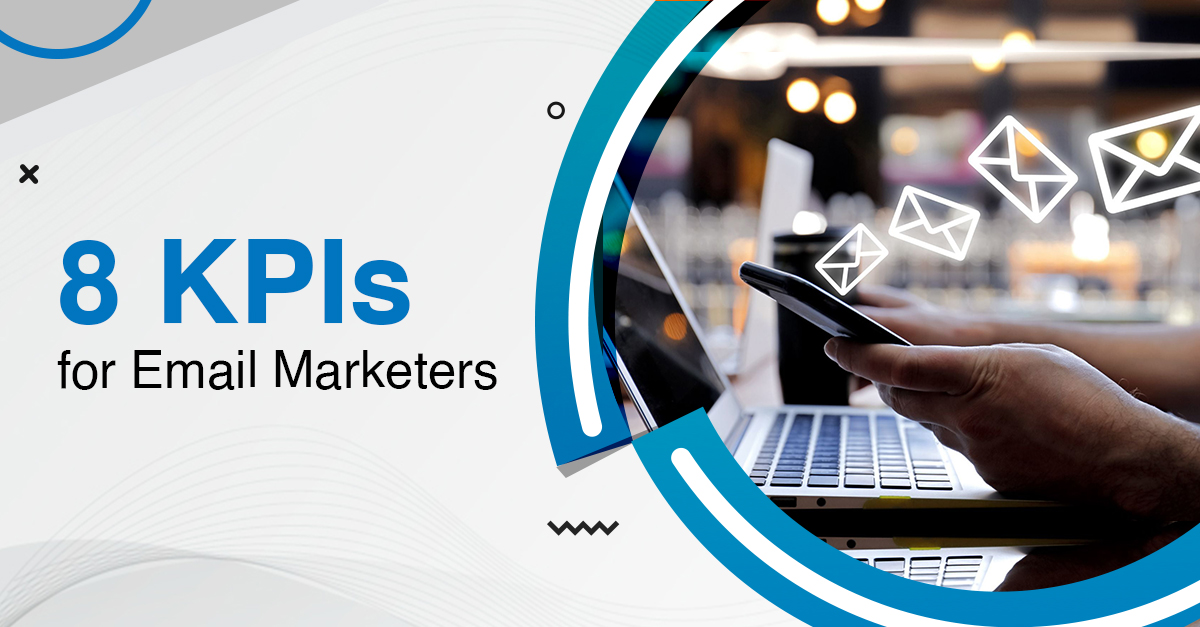No email marketing would ever work if the mentality is “set it and forget it.” When it comes to email, it is important to figure out what’s working and what needs improvement. You should be active enough to analyze your email campaigns. And the key to it is different KPIs for email marketers that can help improve campaigns.
The right KPI for your company is dependent on the nature of your business. There can be different terms and understanding of the word success for each company
KPIs for Email Marketers
We’ve filtered some baseline KPIs that almost every email marketer should be using to enhance the ability of their email marketing campaign by making adjustments to boost success.
1. Delivery Rate
The delivery rate mentions the percentage of emails delivered.
It is important to make sure that your intended audience received your email. This is where everything starts when are reviewing your campaigns. If your emails aren’t successfully delivered to inboxes or are going to spam, your offers and content are not being received, regardless of how compelling they might be.
2. Click-Through Rate
The click-through rate denotes the percentage of clicks once an email has been opened.
It involves the percentage of email recipients who not just opened your email but also clicked on at least one of the links that you’ve mentioned in your email. This KPI is used by marketers to measure the strength of the email’s content or offers.
3. Event Lag
Event lag denotes the average time between the click and sending time.
So we will know if someone has clicked and on what exactly they’ve clicked. But you also need to measure how long did it take for them to get there. That’s where event lag will help you to measure the effectiveness of your subject lines and the content of the email.
4. Bounce Rate by Bounce Type
The bounce rate denotes the percentage of messages rejected by the email client.
No wonder delivery rate is an important KPI for email marketing, it doesn’t tell the whole story. If your email isn’t reaching your customers’ inboxes, you need to use bounce rate by bounce type to understand why is that so.
5. Unsubscribe Rate and Complaint Rate
The unsubscribe rate denotes the percentage of unsubscribes per delivery. On the other hand, the complaint rate denotes the percentage of complaints per delivery.
When a subscriber flags the email as spam, it leads to lodging a complaint. Many marketers take unsubscribes as demoralizing but they can learn a lot from it.
But if you are facing high unsubscribes and complaints about a specific email, or over a specific time period, you need to track your unsubscribers, take the notice of what’s wrong with your email tactics, and fix it.
6. Web Traffic and Conversions
Web traffic and conversions can be considered to be the bread and butter of email marketing. Almost every email campaign is to lead customers to some kind of conversion. Yet marketers make the mistake of leaving it untracked.
That’s where you can add UTM parameters to email links to easily harmonize emails with web pages in your web analytics tool. It will help you track the percentage of recipients who completed the email’s intended purpose, such as converting online to visit or make a purchase,
7. Campaign Performance
Emails are usually never ad-hoc. They’re part of a larger customer journey. There can be times when a single email will be used in multiple journeys, at different stages, or for different audiences. So, this makes it important to always be aware of your campaign performance.
No matter the case, it’s critical that email marketers should not look at their email performance in one silo or another. Instead, they must examine email performance by campaign and performance for each email.
8. Subscriber List Growth and Trends
You always have to be aware of your subscriber list. Is it growing? Is it stagnant? Or is it declining? You need to track the health of your various lists and segments to know how your emails are performing over time.
Note These KPIs for Email Marketers
While the tricks and tactics of email marketing keep changing, the core principles have remained the same, which is to give your customers something of value.
So, keep delivering value whilst tracking your success. While these email marketing KPIs can help get you started, make sure you don’t stop here. Always keep evolving and our Salesforce consultants can help you with this.


